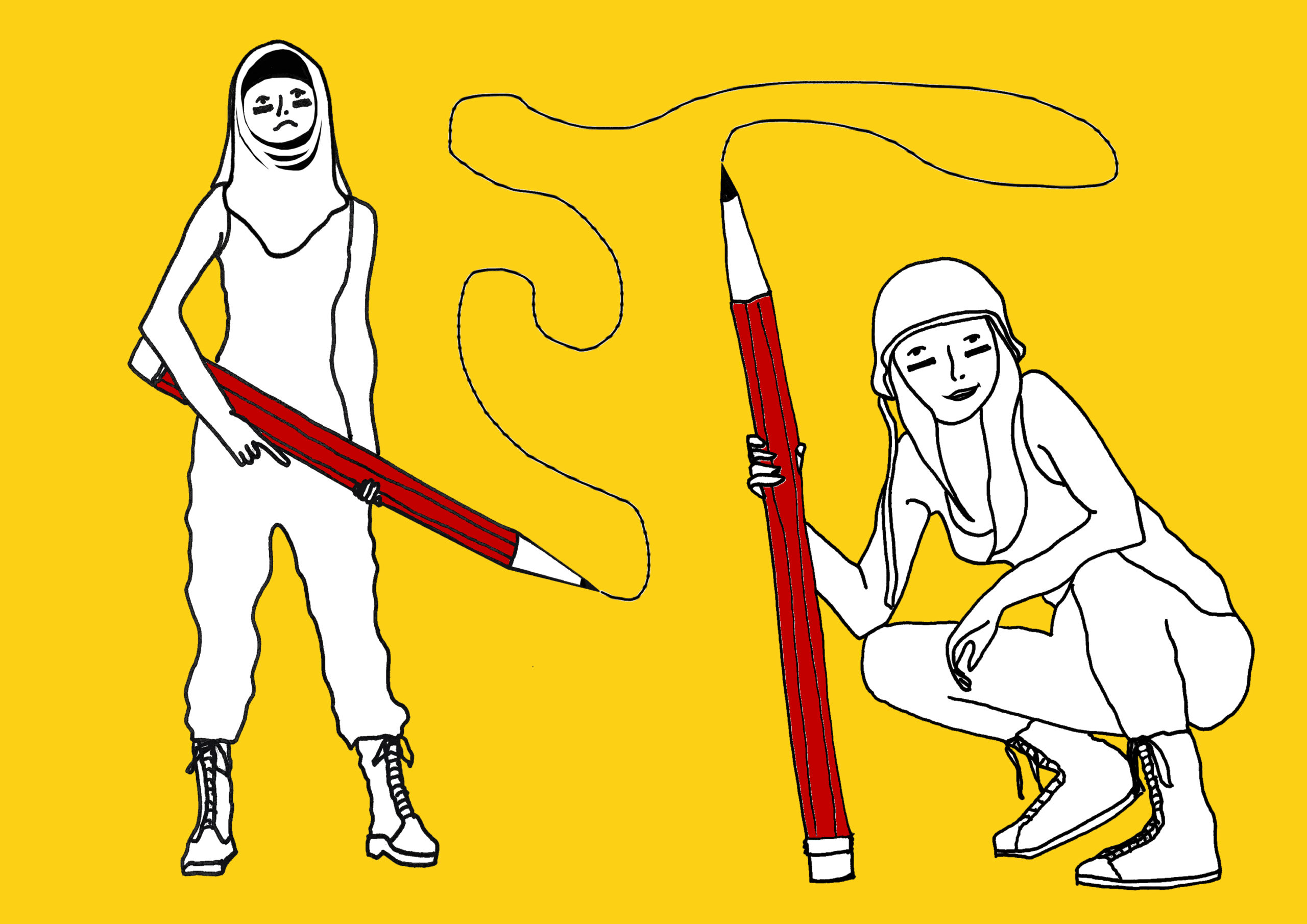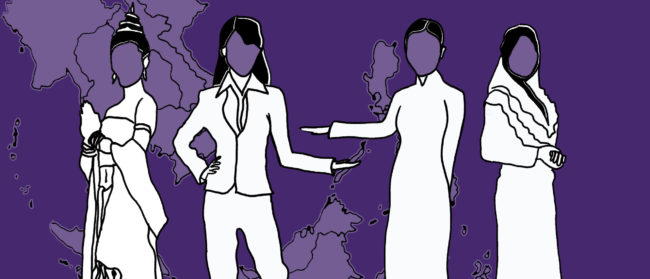Once upon a time, a young woman named Ella had enough of being bullied by her stepsisters so she headed to the prince’s palace and … begged him to marry her?
If it sounds even vaguely familiar, it’s because the story is an unorthodox twist on the tale of Cinderella. It was also the first baby-step of Malaysian cartoonist VieN – a pen name used by the web artist, who also goes by the playful moniker VulpineNinja and carefully protects her offline identity – into the world of feminist creativity.
“I felt Cinderella was too much of a pushover because she allowed her stepsisters to bully her. So I made her go to the palace and beg the prince to marry her,” she said, laughing as she remembered the story she’d written at the age of seven. “I don’t know what I was thinking but I guess I was just mad that she was allowing herself to be bullied.”
That first story was playful, but stories like Ella’s can become powerful works when they reject the status quo.
Cartoons themselves are a serious platform in Malaysia, where high-profile political artists like Zulkiflee Anwar Haque, better known as Zunar, and Fahmi Reza have faced sedition charges and the threat of decades in prison for their biting satire of the central government. It’s within this kind of striking visual tradition that VieN and fellow Malaysian cartoonist Faizati Mohd Ali are now fighting to further social justice and women’s rights.
Though their work is hardly limited to religious matters, both women have directly challenged patriarchal social norms derived from Islamic teachings, a line that can be controversial in Muslim-majority Malaysia. Between the two of them, they’ve taken aim at everything from child marriage and traditional gender roles to sexually violent rhetoric aimed at women who do not wear the hijab, an Islamic head covering.
Being an unapologetic feminist cartoonist in Malaysia is not for the faint of heart and, as a result of their work, the artists have attracted the ire of social conservatives and outright trolls, some of whom have tried to locate or track them in the real world.
Despite the chill of cyberbullying and online intimidation, VieN and Faizati are committed to speak on gender issues that all too often go excused or overlooked, using their voices for those who feel they can’t.
“I receive a lot of feedback on social media from women who tell me, ‘I’ve been thinking the same thing but didn’t have the means to say it,’” Faizati said.
Tackling thorny issues with pen and paper
While Vien’s quiet dissent started in childhood, she worked her way up and gradually began using art as a medium to challenge social conventions in Malaysia, while also commenting on nuanced women’s issues in the country.
Her style sometimes veers towards the ‘dark’, reflecting her willingness to dig deep and address taboo topics in Malaysia. On her Facebook page, which she announces is a ‘#feministpage’, she publishes her work for free, offering insights into topics like sexual violence against women.
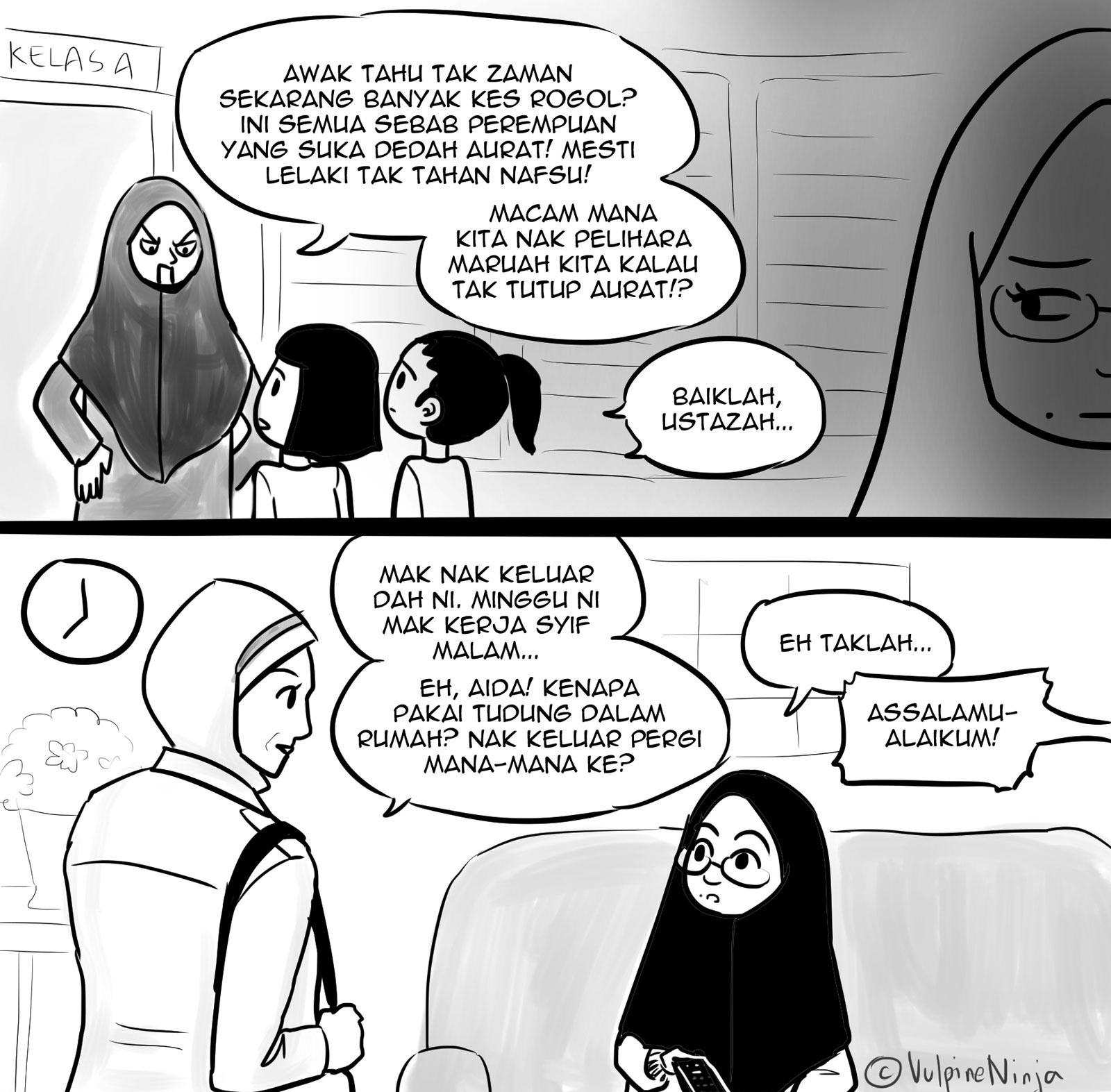
In one cartoon, shown above in the Malay language, a religious teacher is seen scolding students who do not have their hair covered with hijab.
She tells them: “Do you know there are many cases of rape these days? It’s because women are not covered up properly. That’s why men are not able to control their urges!”
That cartoon alone sparked debate through some 550 comments on Facebook.
One user chided, “Islam is a religion. Don’t blame Islam.” Another noted, “Maybe the admin has forgotten that covering up is God’s order…”
VieN herself is a Muslim who has chosen to wear the hijab. She’s well-aware that Islam is a religion. What she rejects is the use of its creed to promote violence against women.
“I’m not criticising the religion, but the people who practice it”, VieN explained.
Faizati too has gained recognition and pushback alike from her cartoons with religious themes or imagery.
She first gained recognition with a piece denouncing child marriage in Malaysia, a cartoon shown below and created in response to a widely publicized case of a 41-year-old man who wed an 11-year-old. According to media reports, the girl was to be his second or third wife.
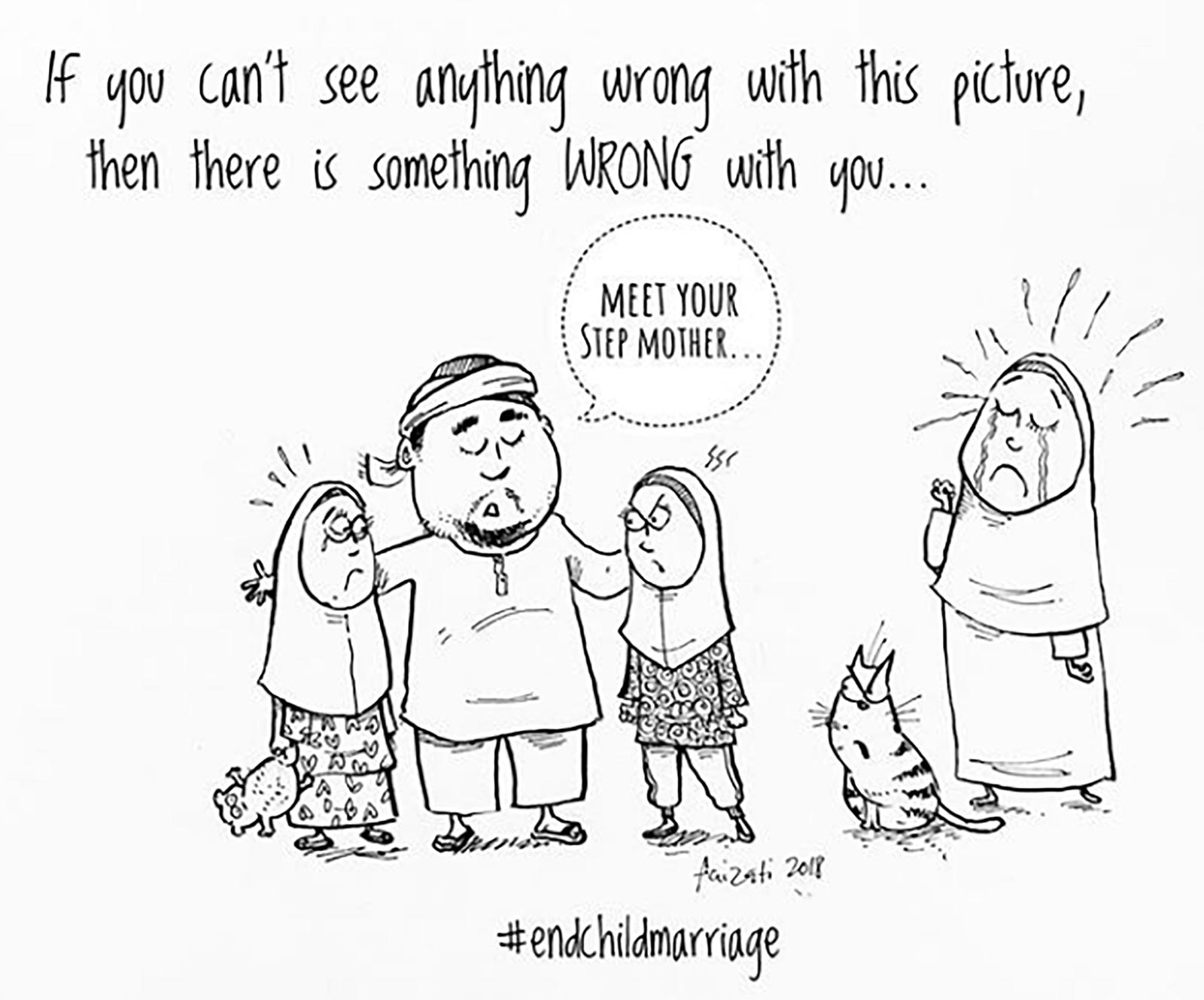
Faizati’s cartoon, which carries the hashtag #endchildmarriage, attracted the attention of UNICEF Malaysia, which published the cartoon on their own social media page. Public fury ensued, Faizati said, with most of the user comments leaning toward the critical.
She said the more negative commentary was not directed at the issue of child marriage but at the cartoon itself for supposedly portraying Muslims in a bad light.
“People were questioning why I drew the man in the cartoon the way I did, saying I was bashing Islam and that child marriage is not a problem for Muslims only,” the artist told the Globe, commenting on her choice to clothe the characters in traditional Muslim garb. “But the point of my cartoon is that nobody else uses religion as an excuse and justification for child marriage.”
While other groups in Malaysia also practise child marriage, a UNICEF Malaysia report found nearly 6,590 cases among the country’s Muslim children between 2011 and 2016.
The report also pinpointed how the nation’s complex legal structure, which includes both sharia and civil law, further exacerbates the issue.
Under civil law, the permissible age of marriage for both girls and boys is 18 years.
However, sharia law stipulates that children can be married at younger ages than that, with no clear minimum age.
Last year, members of the Malaysian federal government attempted to raise the sharia legal age for marriage to 18. However, in a country where the voices of religious conservatives have considerable influence, interpretations of religious texts that favour the patriarchy are frequently upheld and vigorously defended. The move to raise the religious marriage age was opposed by seven of the country’s 14 states.
That group included the states of Sarawak, Pahang, Terengganu, Perlis, Negeri Sembilan, Kedah and Kelantan.
Child marriages are often justified by the argument that they help curb the so-called sins of pre-marital sex and adultery by legitimising relationships through matrimony.
Activism through art
The art of both cartoonists has been a natural fit for gender-based activism.
Late last year, a compilation of Faizati’s cartoons was published by Sisters in Islam (SIS), a non-governmental organisation in Malaysia working towards advancing the rights of Muslim women. The publication, translated in English as The Hand that Rocks the Cradle, Shakes the World, is in keeping with her emphasis of the significance of mothers. But the cartoons also address many other pertinent issues, including child marriage, discrimination towards the LGBTQ community, sexual harassment, corruption and religious hypocrisy.
VieN, who has also worked with SIS, produced a booklet this year with the Rape Watchdog Group. The organisation commissioned her in conjunction with International Women’s Day this year – an annual celebration to acknowledge the contributions of women in global development and to promote gender equality – for a longer work titled “Malaysia vs Budaya Rogol”, translated to “Malaysia vs Rape Culture”.
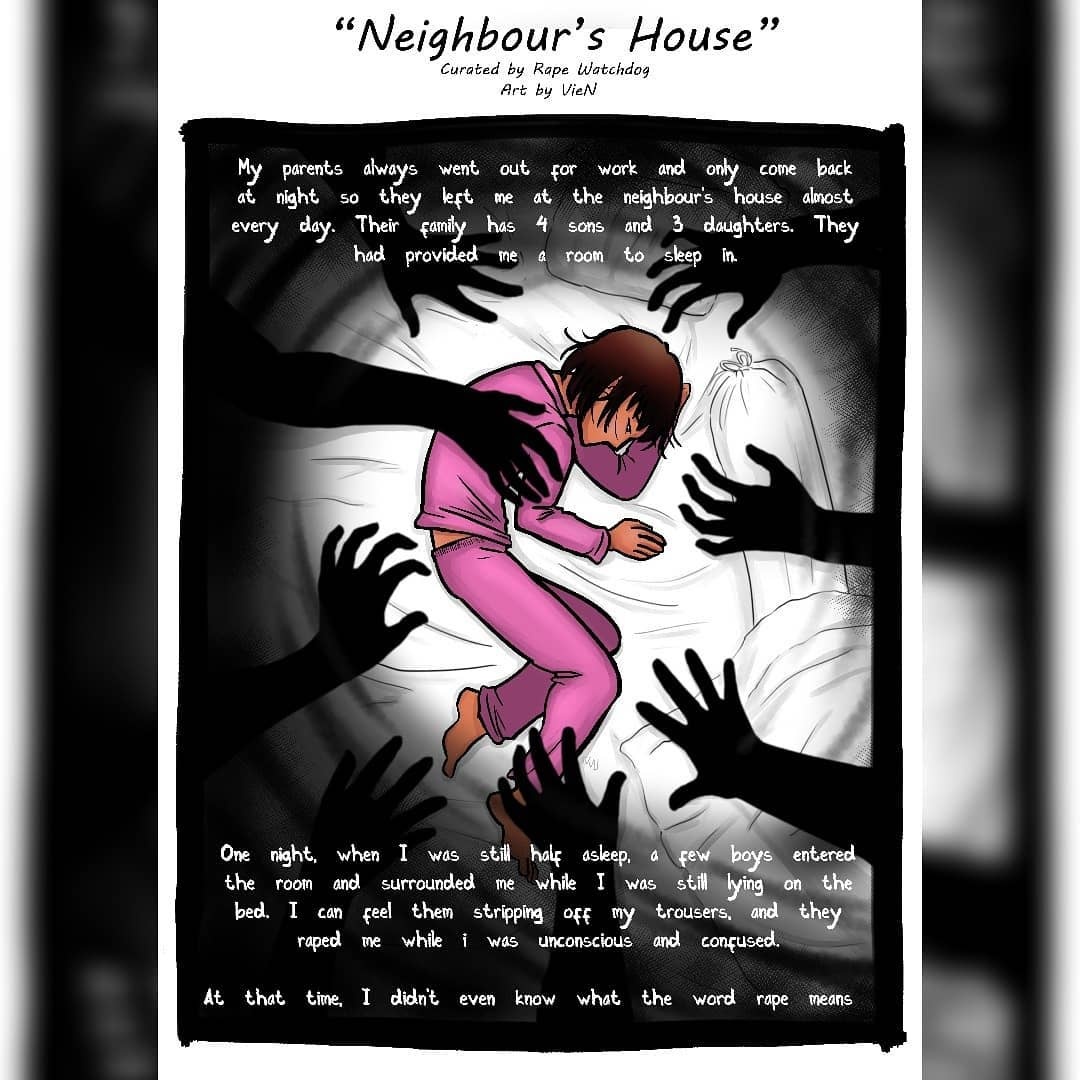
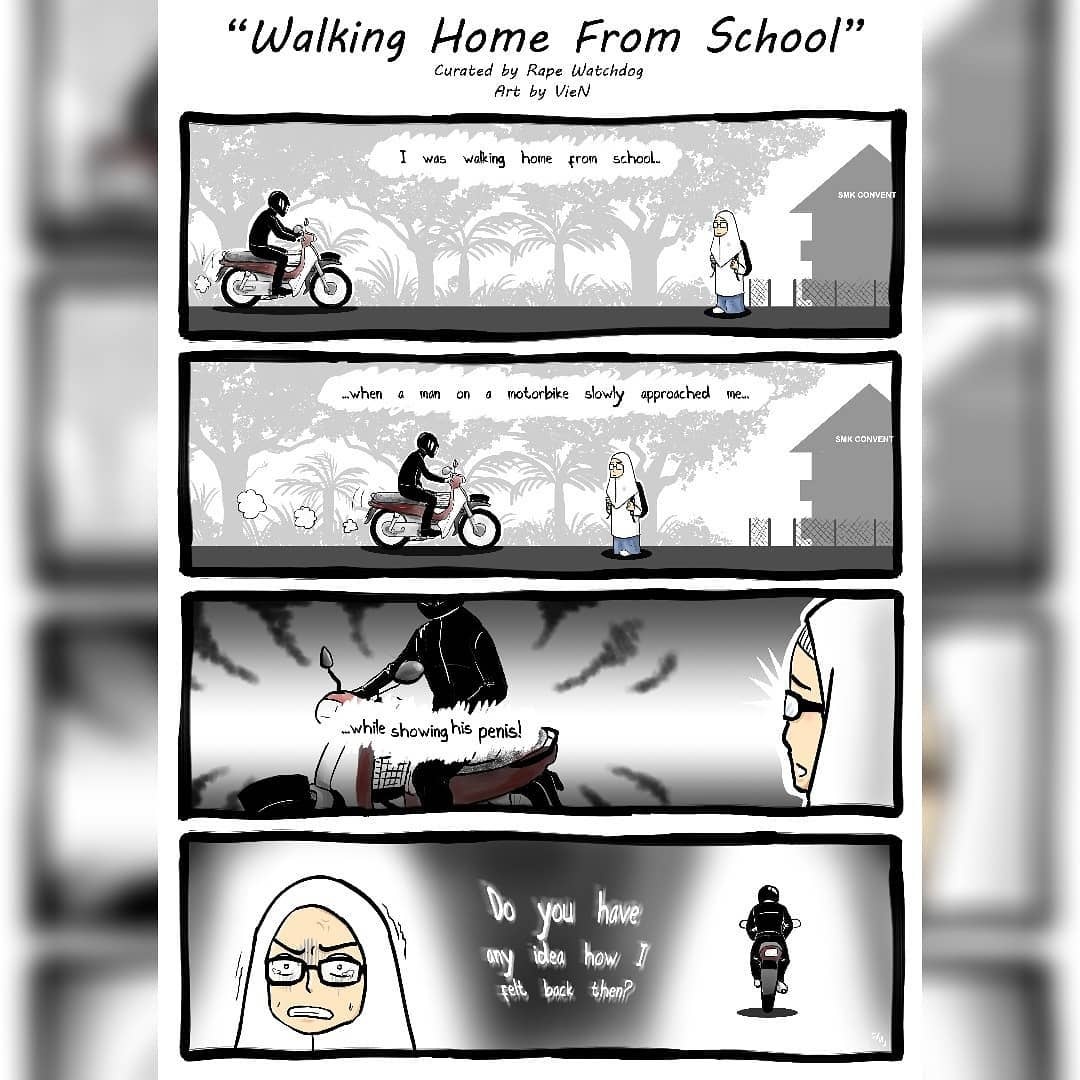
The proceeds of the booklet will go to the Women’s March movement in Malaysia.
VieN, who now has around 56,000 followers on Facebook, aspires to have a similar reach to Zunar, who publishes commentary on politics and corruption to more than 173,000 followers. Publishing her work regularly for that many people would bring women’s issues much more prominence, she says, elevating the subject to the national mainstream.
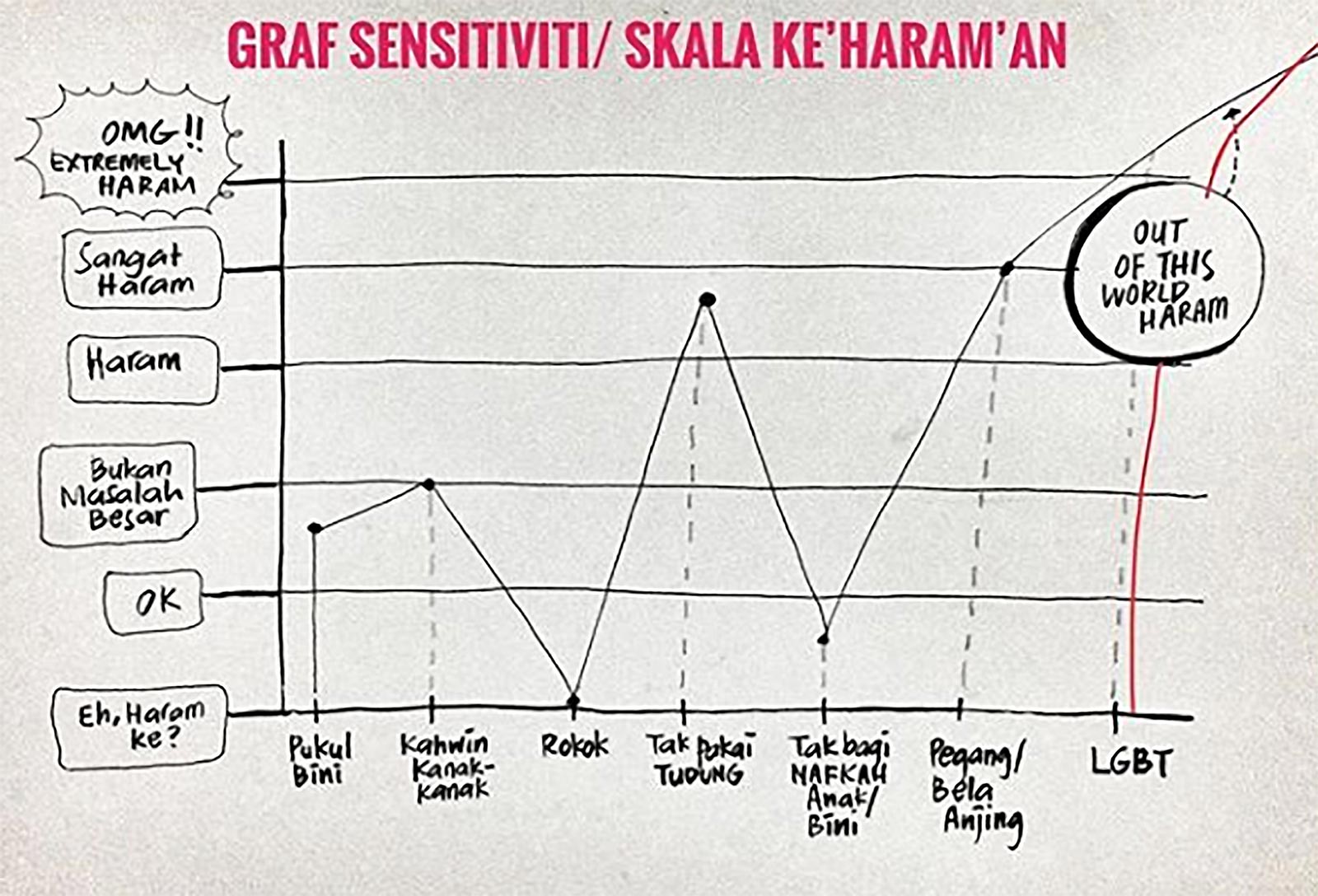
While it was perhaps inevitable that both artists would engage in activism, VieN maintains that was not her intention when she started drawing cartoons.
“I just wanted to express myself,” she said.
Standing up to toxic masculinity
Faizati’s cartoons are often conceived in reaction to issues that provoke or move her, but they also come from personal experience.
“I’ve always felt strongly about injustice and the way women are treated. As a child, whenever I travelled to my hometown, I noticed that women would do all the cooking but when it came time to eat, the men were served the food first.”
She didn’t realise it back then, but Faizati said that she probably buried her indignation at the unfairness of it all, which now comes out full force in her cartoons.
Her sentiments have been echoed by women who posted their comments in response to her cartoons.
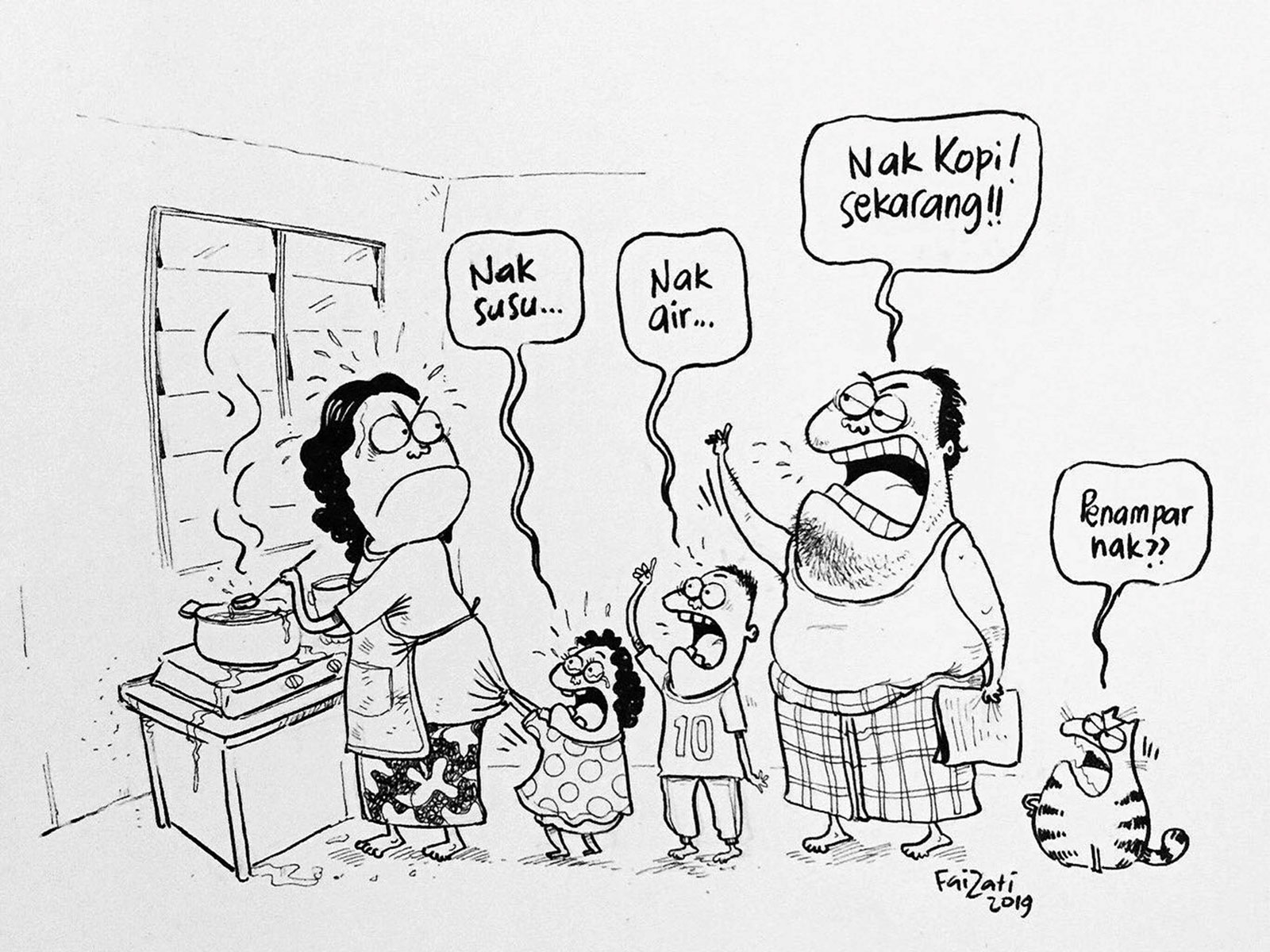
“People were questioning why I drew the man in the cartoon the way I did, saying I was bashing Islam and that child marriage is not a problem for Muslims only.”
Faizati
“So it’s not something that’s so out of the ordinary,” said Faizati. “We’ve all been thinking about this but we don’t have the means to share it or raise it.”
When asked about responses from men, she said there are two types.
“There are the ones who accuse me of being liberal,” she said with a laugh.
While she doesn’t have a problem being called that, she knows it’s a dirty word among her detractors.
“Like feminist, it has a negative connotation for them. If you’re associated with these things, that means you’re against Islam!”
She said there is a particular group of men who seem to wait with bated breath for her to publish her cartoons.
“So they can bash me,” she chuckled. “So active! If you hate me so much, why do you follow me?”
On the positive side, there are those who come to her defense, and stand as big fans of her work and her message: “Both men and women. These are the other types of men, who are more open-minded.”
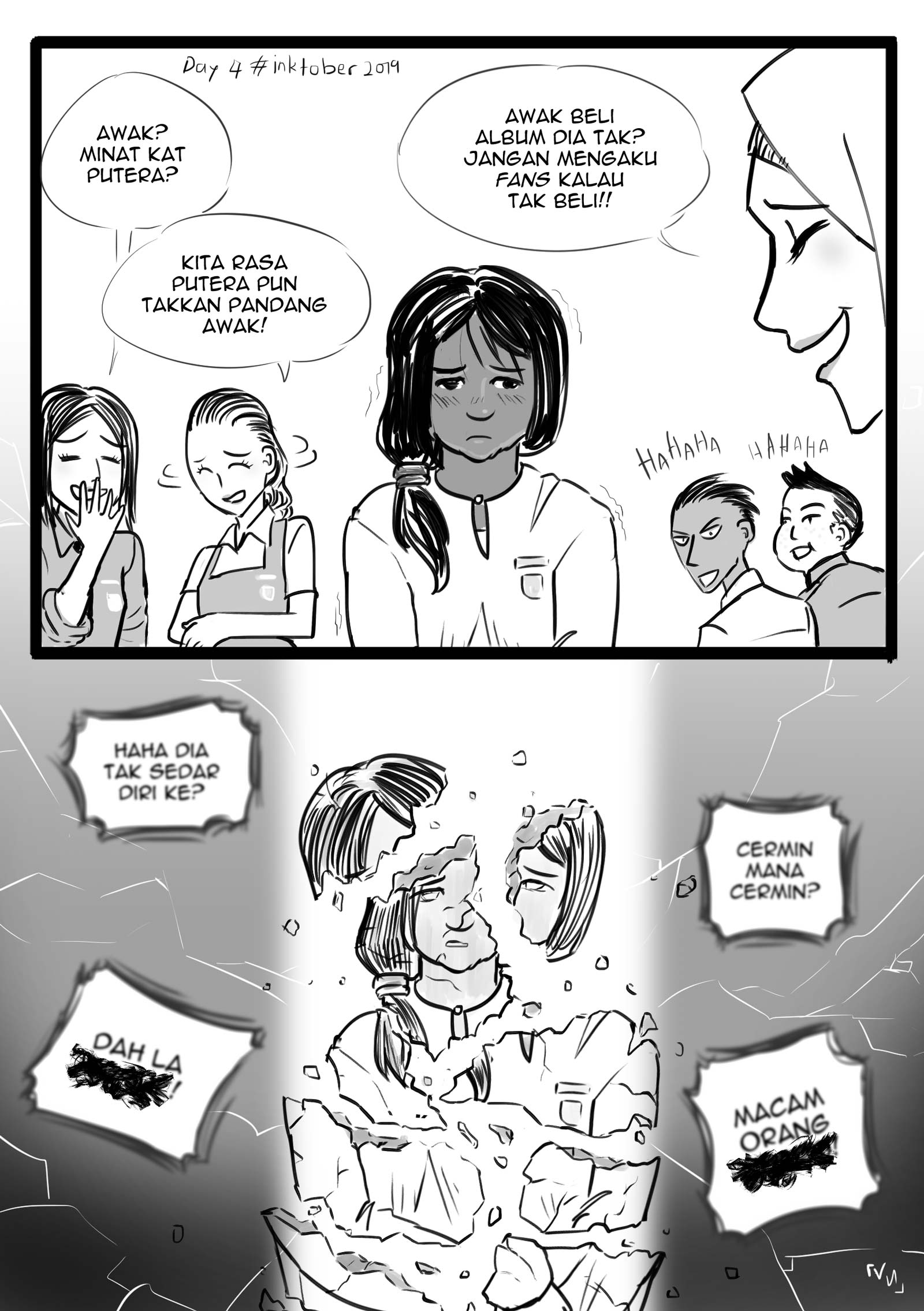
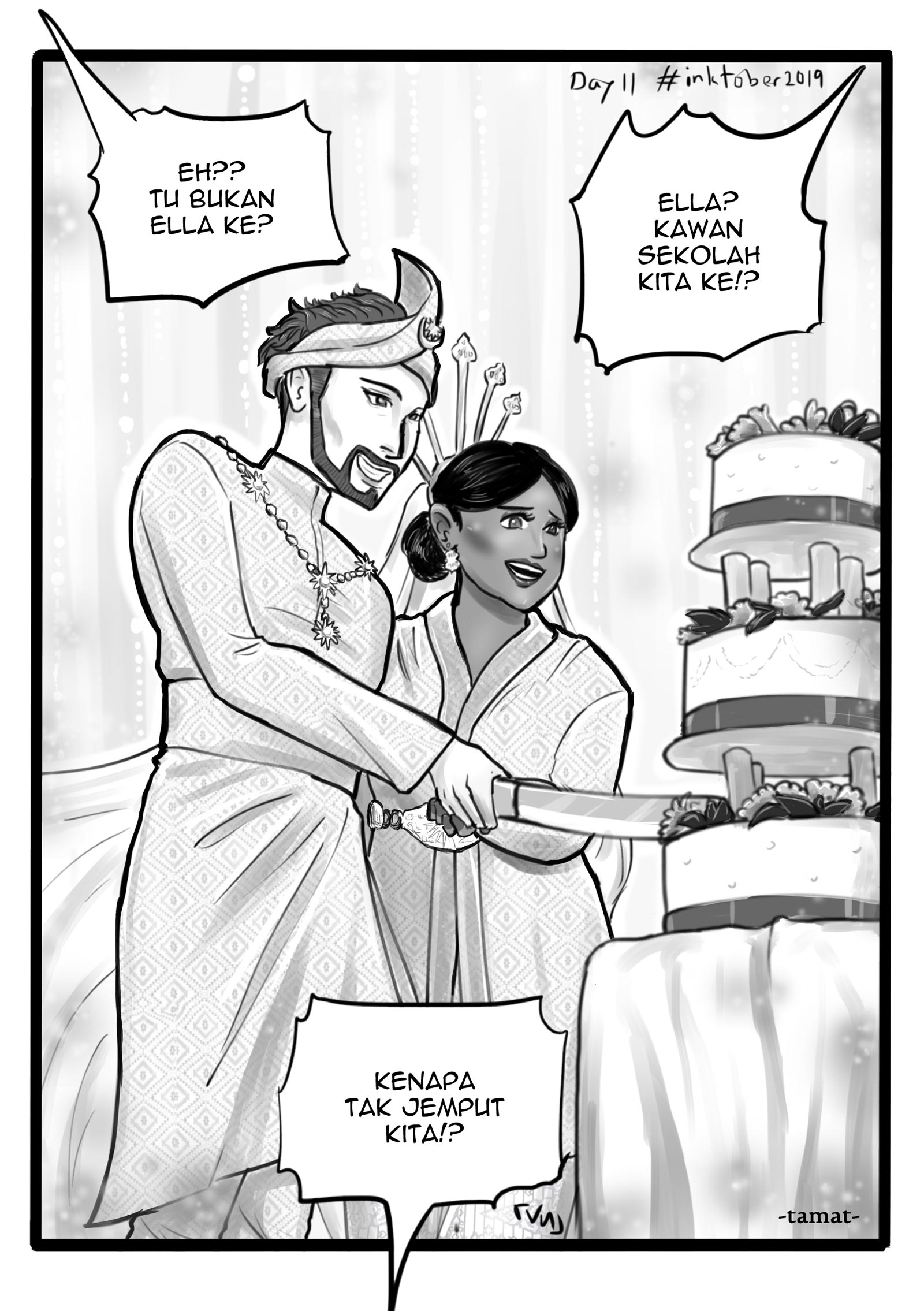
In her own work, VieN sheds light on her evolving perception of feminism in addition to openly commenting on social issues in Malaysia. In an updated version of her childhood interpretation of Cinderella, which she drew last year, Ella, a dark-skinned girl who was bullied by her peers, grows up to be a successful journalist. She captures the heart of a popular celebrity nicknamed Prince – a boy adored by her former bullies – and ends up marrying him, much to the astonishment of her former schoolmates.
When explaining her thought process behind the cartoon, VieN notes that in her story Ella does not undergo a physical transformation because she herself abhors the concept of makeovers.
“I thought it was important that she changed her resolve, not her physical self,” VieN said. “When she wants something, she works hard for it.”
Give and take
Though she’s weathered controversy in the past, VieN says she now steers clear from religious topics these days due to harassment and cyberbullying.
Even with the anonymity of her pen names, VieN was doxxed – Internet-speak for having personal information uncovered and spread around – by those who didn’t like what she had to say. Someone even found a photo of her attending a wedding and posted it on the LowYat forum, a popular local message board. Her friend happened to be a moderator of the forum and immediately removed the picture.
“They somehow managed to access my personal Facebook page,” she said, looking back on the incident. Aside from sharing it among themselves, her detractors also posted her photo widely on Twitter. “I was worried that these people would find out where I live or start attacking my family members to get to me.”
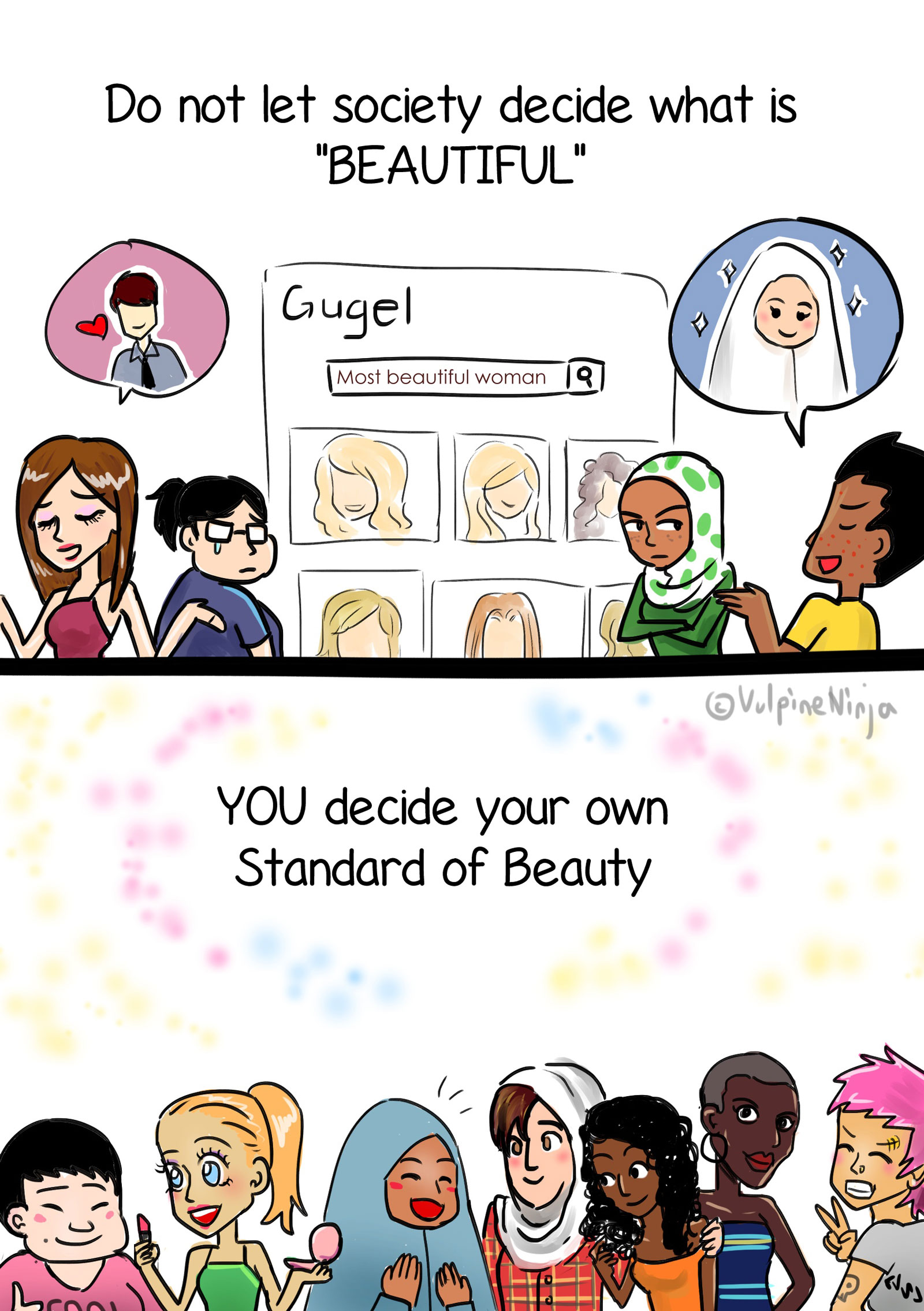
VieN, who doesn’t earn a living through her drawings, admits she was also worried about whether her employment prospects would be affected if she used her real name. Despite these concerns, she says she never blocks dissenters from her page unless they leave threatening comments.
“I may mute conservative people if they become too overwhelming, but I won’t block them because I want them to see and learn [about the cartoons’ messages] even if they disagree,” she said, adding with a laugh, “It’s weird that they share my work [even] when they don’t like it.”
While she didn’t anticipate the doxing and cyber-bullying back when she started publishing her cartoons on Facebook, VieN assumed the VulpineNinja persona to help her remain incognito online and preserve her identity.
At the moment, Faizati is unfazed by the harsh criticisms and insults thrown her way.
“When they react, I know they read my cartoons. I’d rather have that then no reaction at all. That’s why I set up a public page although my cartoons are not drawn to intentionally provoke. I just want to share my views and express myself.”
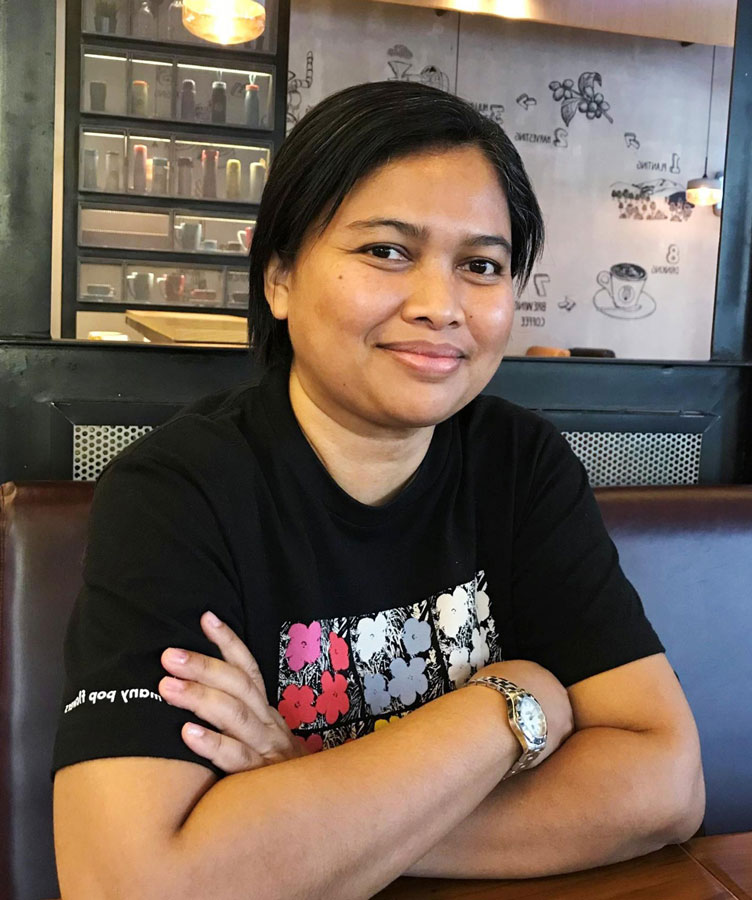
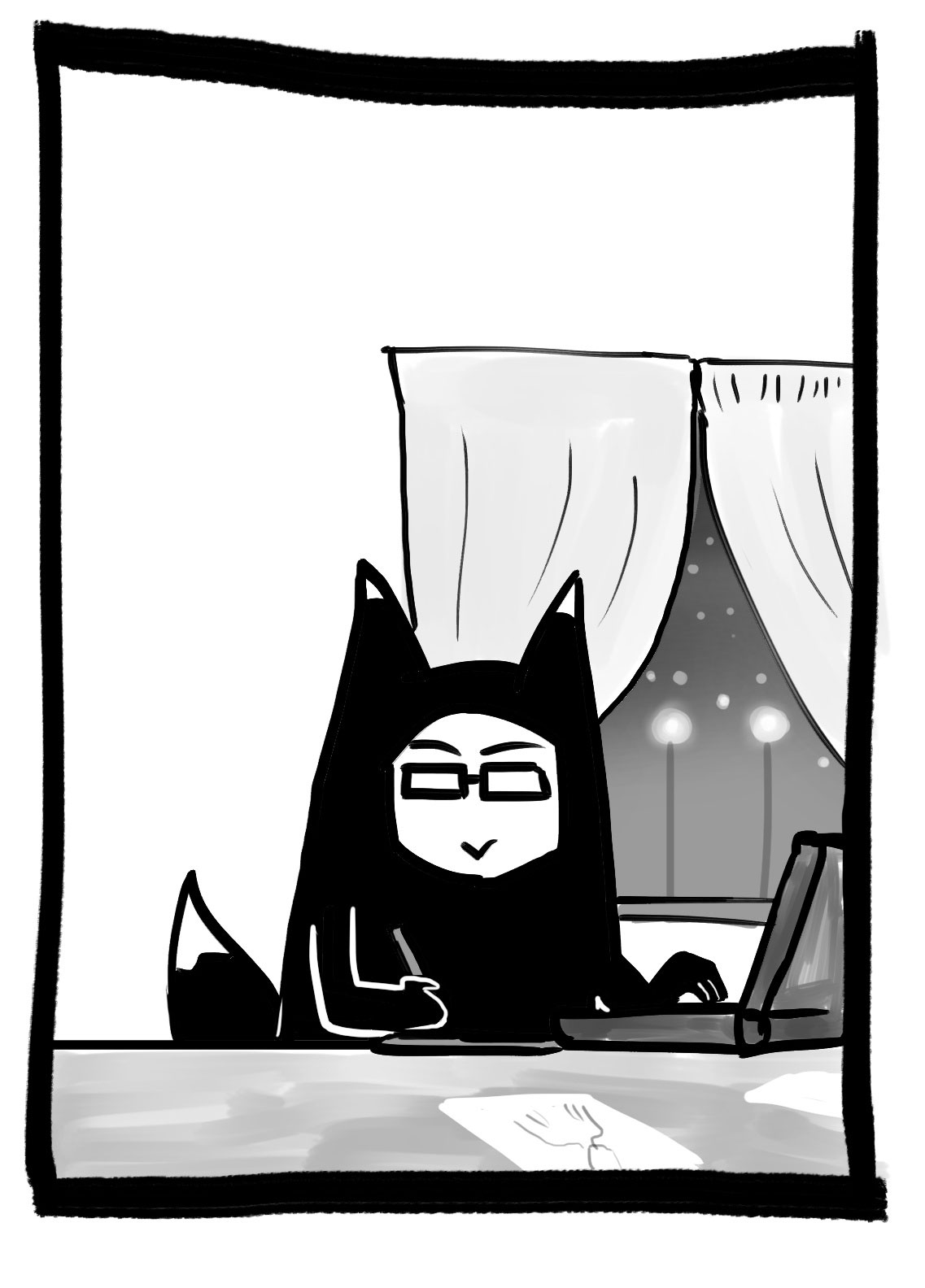
“They somehow managed to access my personal Facebook page. I was worried that these people would find out where I live or start attacking my family members to get to me.”
VieN/VulpineNinja explains, in part, why she uses an avatar to shield her identity.
According to Faizati, the threats she has received mainly revolve around people saying they will try to find her.
“It’s not a big deal for me but I don’t want it to affect my family and have people looking for their photos and posting them online, that kind of thing.” If that were to happen, Faizati said, she will make a police report.
However, she is adamant about not backing down.
“The only question I will ask myself is: ‘Am I doing something wrong?’” she said. “It’s freedom of expression. I’m not going to stop drawing my cartoons because you can’t take them.”
This article has been researched and written as part of our Recognising Resilience campaign. Read more stories here.
